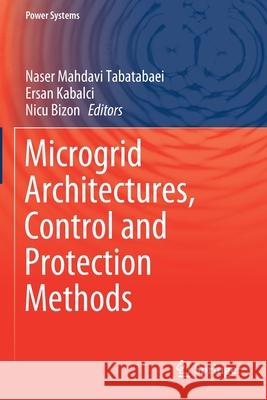Microgrid Architectures, Control and Protection Methods » książka
topmenu
Microgrid Architectures, Control and Protection Methods
ISBN-13: 9783030237257 / Angielski / Miękka / 2020 / 781 str.
Microgrid Architectures, Control and Protection Methods
ISBN-13: 9783030237257 / Angielski / Miękka / 2020 / 781 str.
cena 645,58
(netto: 614,84 VAT: 5%)
Najniższa cena z 30 dni: 616,85
(netto: 614,84 VAT: 5%)
Najniższa cena z 30 dni: 616,85
Termin realizacji zamówienia:
ok. 16-18 dni roboczych.
ok. 16-18 dni roboczych.
Darmowa dostawa!
Kategorie:
Kategorie BISAC:
Wydawca:
Springer
Seria wydawnicza:
Język:
Angielski
ISBN-13:
9783030237257
Rok wydania:
2020
Wydanie:
2020
Numer serii:
000239383
Ilość stron:
781
Waga:
1.12 kg
Wymiary:
23.39 x 15.6 x 4.14
Oprawa:
Miękka
Wolumenów:
01
Dodatkowe informacje:
Wydanie ilustrowane











